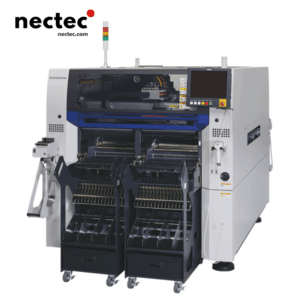In today’s fast-paced electronics manufacturing environment, efficiency and precision are paramount. One of the most critical tools in achieving these goals is the surface-mounted device (SMD) pick and place machine. With the growing demand for compact and efficient production lines, table top SMD pick and place machines have emerged as popular choices. This article explores the key aspects of selecting the right table top SMD pick and place machine for your production needs.
What is a Table Top SMD Pick and Place Machine?
A table top SMD pick and place machine is a compact automated device used in the assembly of electronic circuits. Unlike larger industrial machines, these table top versions are designed for smaller production runs, prototyping, and use in various environments, including educational institutions, laboratories, and smaller manufacturing setups. Their compact size does not compromise on features; many models boast advanced technology and high precision.
Key Features to Consider
When selecting a table top SMD pick and place machine, there are several critical features to consider to ensure it meets your specific production requirements:
| Feature | Description | Importance |
|---|---|---|
| Placement Speed | The speed at which components can be placed on a PCB. | Higher speed increases productivity. |
| Accuracy | Precision in placing components in designated spots. | Critical for high-quality assembly, reduces rework. |
| Flexibility | Ability to handle different component sizes and types. | Versatility in production runs. |
| Software Compatibility | Ease of use and compatibility with existing design software. | Streamlines the workflow and reduces learning curve. |
| Maintenance | Ease of maintenance and access to spare parts. | Ensures minimal downtime and long-term usability. |
Assessing Your Production Needs
Before choosing a machine, it’s essential to assess your production needs. Consider the following questions:
- What is the volume of production required? Are you focusing on high volume or low volume production?
- What types of PCBs are you assembling? Are they simple designs or complex multi-layer boards?
- Do you require quick changeovers for prototypes or special runs?
- What is your budget, and what are the long-term operational costs of the machine?
Understanding the answers to these questions helps narrow down your options and choose a machine that aligns with your production goals.
Popular Table Top SMD Pick and Place Machines
As the demand for table top SMD pick and place machines grows, several manufacturers offer high-quality options on the market. Here are a few of the well-regarded machines:
1. LiteXpress
LiteXpress is known for its compact design and high placement speed. This machine is ideal for prototype production and small batch runs, accommodating various SMD types.
2. Neoden 4
The Neoden 4 is another popular choice, offering a solid combination of speed and precision. It’s user-friendly and compatible with most CAD software, making it a favorite among small manufacturers and hobbyists.
3. Zhenhua ZH-PNP
For those seeking automation, the Zhenhua ZH-PNP machines provide advanced features, including dual-head placement and extensive software support, suitable for low to mid-volume production.
Benefits of Using a Table Top SMD Pick and Place Machine
Integrating a table top SMD pick and place machine into your production line offers several advantages:
- Increased Efficiency: Automating the placement process drastically reduces assembly time.
- Improved Quality: Automation leads to consistent placement accuracy, reducing the likelihood of defects.
- Cost-effective: Ideal for small- to mid-scale production runs, these machines minimize labor costs.
- Space-saving: Their compact design makes them suitable for operations with limited space.
- Easy Operation: Most table top machines feature user-friendly interfaces, enabling users with varying skill levels to operate them effectively.
Challenges and Considerations
While table top SMD pick and place machines offer numerous benefits, there are also challenges to consider:
- Production Limits: These machines may not be suitable for very high-volume production.
- Initial Investment: While they are generally cheaper than large machines, the upfront cost can still be significant.
- Training Required: Staff may require training to maximize the machine’s features and efficiency.
Maintenance and Best Practices
To ensure your table top SMD pick and place machine continues to operate efficiently, regular maintenance is crucial. Here are some best practices:
- Regularly clean the machine to prevent dust and debris build-up, which can affect accuracy.
- Check and calibrate the machine settings periodically to maintain placement precision.
- Follow manufacturer guidelines for software updates to ensure optimum performance.
- Train staff on routine maintenance procedures to maximize the machine’s lifespan.
Future Trends in SMD Assembly
The world of electronics manufacturing is evolving rapidly. Future trends may include:
- Increased Automation: Further developments in machine learning and AI could lead to enhanced automation capabilities.
- Smarter Machines: Future table top machines may offer better integration with IoT devices for smarter operation.
- Sustainability: Manufacturers are likely to focus on creating more energy-efficient and eco-friendly machines.
Investing in a table top SMD pick and place machine can significantly enhance your production capabilities while providing the flexibility needed for today’s dynamic market. With numerous options available to cater to diverse needs, ensuring you choose the right machine can set your production line up for success.






